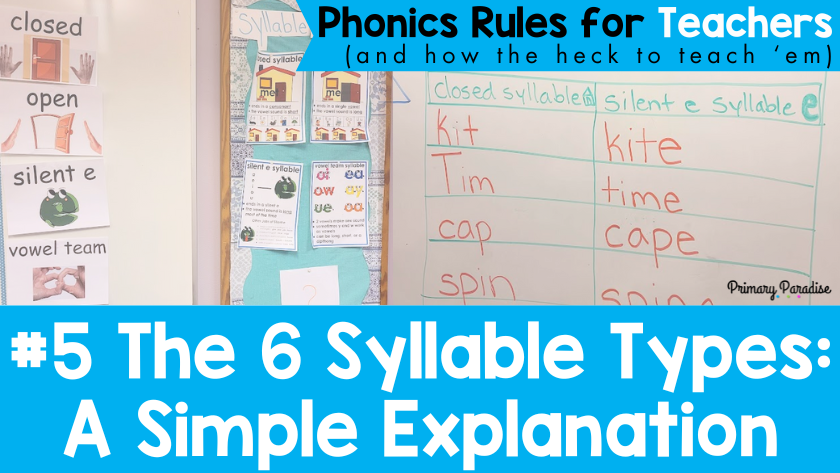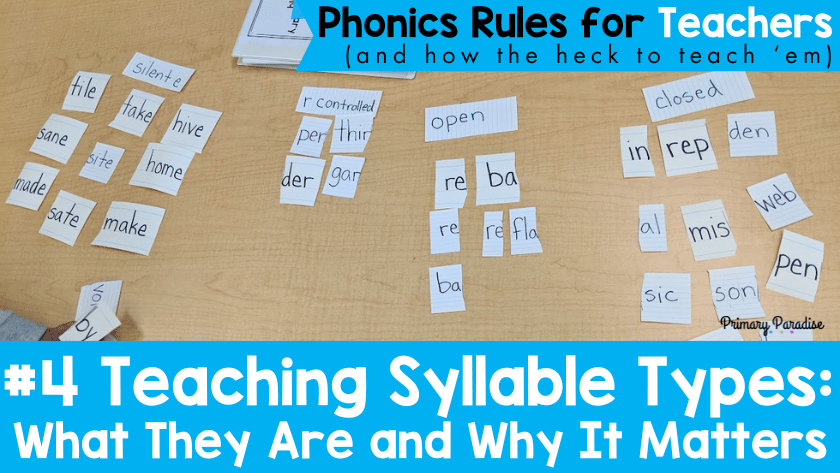Encoding and decoding are two connected but different skills. While both of these skills are important, understanding the difference between the two is crucial to good literacy instruction. If you can pinpoint whether a struggling student need to work on their encoding or decoding skills, you can better target your phonics, reading, and writing instruction. Let’s examine what encoding and…
If you’re wondering, “How do I actually teach the 6 syllable types?”, you’re in the right place. So far we’ve learned why you need to teach syllables and the basics of each type of syllable. Now it’s time to learn how the heck to teach ’em. This is post 6 in my series Phonics Rules for Teachers (and How the…
Understanding the basics of the 6 syllable types is a great place to start with if you already know what a syllable is and why you should teach it to your students. The What and Why were covered in the last post of Phonics Rules for Teachers (and how the heck to teach ’em) . Now we’ll explore each of…
Syllables are a key building block of the English language and are an important part of strong phonics instruction. There’s a whole lot more to syllables than just clapping out how many a word has and moving on. Understanding the 6 syllable types and using them to help read and write helps the English language make sense. This post will…
Do you teach consonants and vowels to your students? Do you understand the difference between these two phonics concepts? Or why they matter? There’s a lot more to know about consonants and vowels than most teachers realized. Let’s dive deeper into the difference between consonants and vowels, how the impact English words, and how we can teach our students about…




